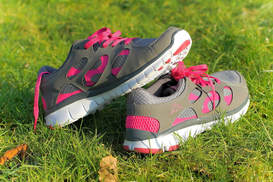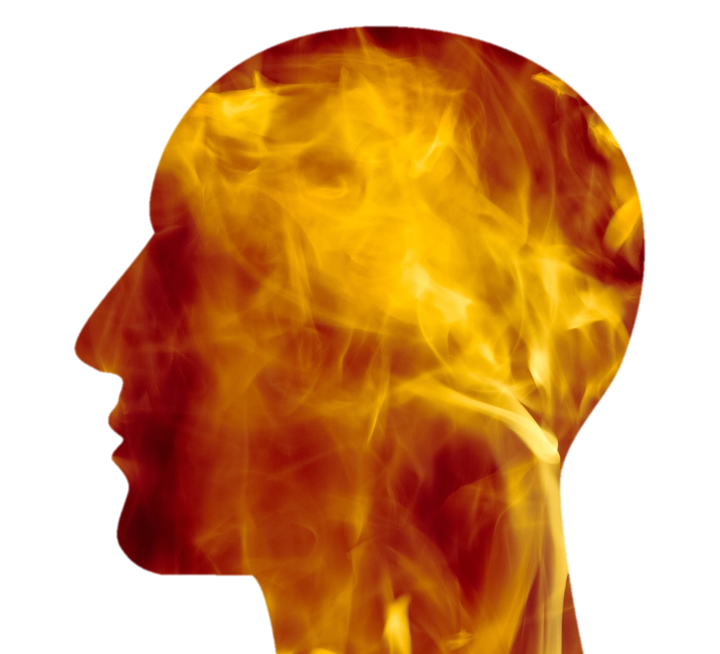What happens?
Research shows that heat sensitivity is common in MS with between 60 and 80% of PwMS reporting worsening of symptoms including a build up of fatigue, blurred vision, loss of balance or increase in cognitive symptoms such as concentration and memory when exposed to heat.
The effect on balance, motor skills and vision can become more evident when exercising as aerobic exercise raises heart rate rapidly which in turn increases body temperature as blood is being pumped more quickly around the body and we eventually begin to sweat in an attempt to cool down..
This can happen almost immediately or over a more prolonged exercise period; much of the research on time associated with symptom exacerbation is dependent on intensity of exercise in relation to rapid increases in temperature. Although symptoms can be unpleasant the effects are temporary and are generally quickly reversed once body temperature returns to normal; the effects of heat do not cause permanent damage to nerves.
From a personal perspective this decrease in function was the symptom which led to my diagnosis; it's hard to call yourself a 'fast-runner' if your leg decides not to work properly after 15 minutes or so!
Changes in temperature affect the way our nerves function and make it more difficult for them to send and receive messages. The fatty myelin coating surrounding nerves encourages effective transmission of nerve impulses (messages) from parts of the body to the CNS; as you know, in MS the myelin costing is damaged meaning that the nerves are more exposed and less protected making it more difficult to transmit accurate messages. Myelin is also responsible for protecting the nerves from changes in temperature so where our myelin had been damaged we are less able to manage changes in temperature.
This process is not fully understood but recent research has shown that increases of only 0.5 degree Celsius can bring about an increase in symptoms. It is also possible that MS lesions can occur in areas of the brain responsible for temperature control and regulation thus making it more difficult to keep cool.
Ever the (inquisitive, nosy) scientist, I was curious about this term as soon as it was mentioned to me and was indeed the first indication that anything was wrong; so I set about 'doing some research'...
Early on, it was mentioned to me when explaining the condition, that as recently as 1983 one of the tests for MS was to immerse a patent into a hot bath for 10-15 minutes and see what happened! In 1890 Professor Uhthoff noticed the transient worsening of MS symptoms once patents were immersed in the hot water. The key symptom assessed initially was visual and how the optic nerve was affected by increases in heat (optic neuritis). This finding lead to the early advice to PwMS not to undertake exercise for fear of worsening symptoms. This lead to conservative advice in regard to rehabilitative exercises and resulted in subsequent deconditioning of patients through lack of exercise (do you remember last week's blog on resistance exercise in maintaining muscle strength?. A real example of 'use it or lose it').
It wasn't until 1961 that this finding was given his name and what we commonly refer to now as 'Uhthoff's Phenomenon'.
The research provides some practical tips to manage the heat:
- Staying well hydrated helps you to manage body temperature so always take a water bottle when exercising and keep sipping it
- it is important not to restrict water intake in an attempt to manage MS bladder symptoms as it can affect your ability to naturally cool yourself by sweating
- I like to keep a half-full bottle of water in the freezer to top up in the gym which keeps the water nice and cold
- Cooling vests and scarves are available to help too
- Pre-cooling by taking a cold bath or shower before exercise can help allow you to exercise for longer
- You can break your workout into several smaller chunks with adequate 'cooling' breaks in between
Whilst this blog focusses on the effects of heat in relation to exercise, women are naturally more susceptible to changes in body temperature than men as a result of hormone-induced processes including menstruation and pregnancy; both of which naturally increase your core body temperature.
Temperature sensitivity is an irritating symptom which can be difficult to get away from if you are badly affected. I've provided a few tips above and there are more on the website. Exercise is an important part of helping to manage this disease so as far as you are able, it is worth trying to find a solution which works for you.
As always, the last word from me...
Do let me know if you have found this post helpful. Send me an email: [email protected];
send me a tweet [@healthylifems] (or use icons below)
or send me a message through the
contact page on the website, I'd love to know what you
think.
Diana xx
Active IQ (2016) Personal Training Manual. Active IQ, London.
Davis S.L., et al (2010) ‘Thermoregulation in multiple sclerosis’ Journal of Applied Physiology. Nov 109:5: 1531-1537
Filingeri, D. et al., (2017) ‘Afferent thermosensory function in relapsing – remitting multiple sclerosis following exercise-induced increases in body temperature’ Experimental Physiology, Aug 1; 102(8): 887-893
MS Trust (2015) ‘Heat sensitivity’. Available at: https://www.mstrust.org.uk/a-z/heat-sensitivity
MS Society (2017) ‘Handling the heat’. Available at: https://www.mssociety.org.uk/ms-research/research-blog/2017/06/handling-heat-latest-research
Opera, J.A. et al. (2016) ‘Uhthoff’s phenomenon 125 years later – what do we know today?’ Journal of Medicine and Life, 9(1): 101-105




